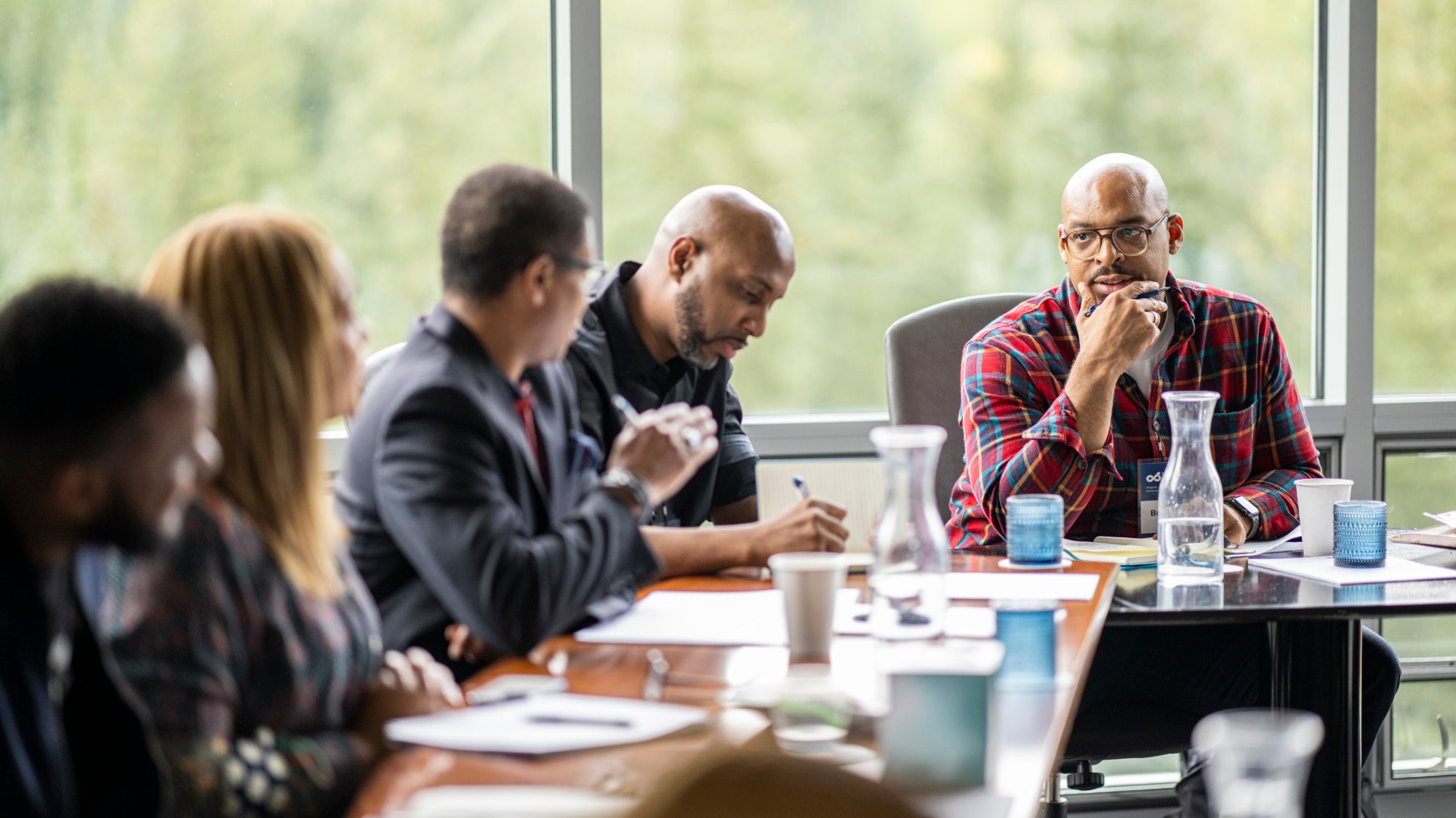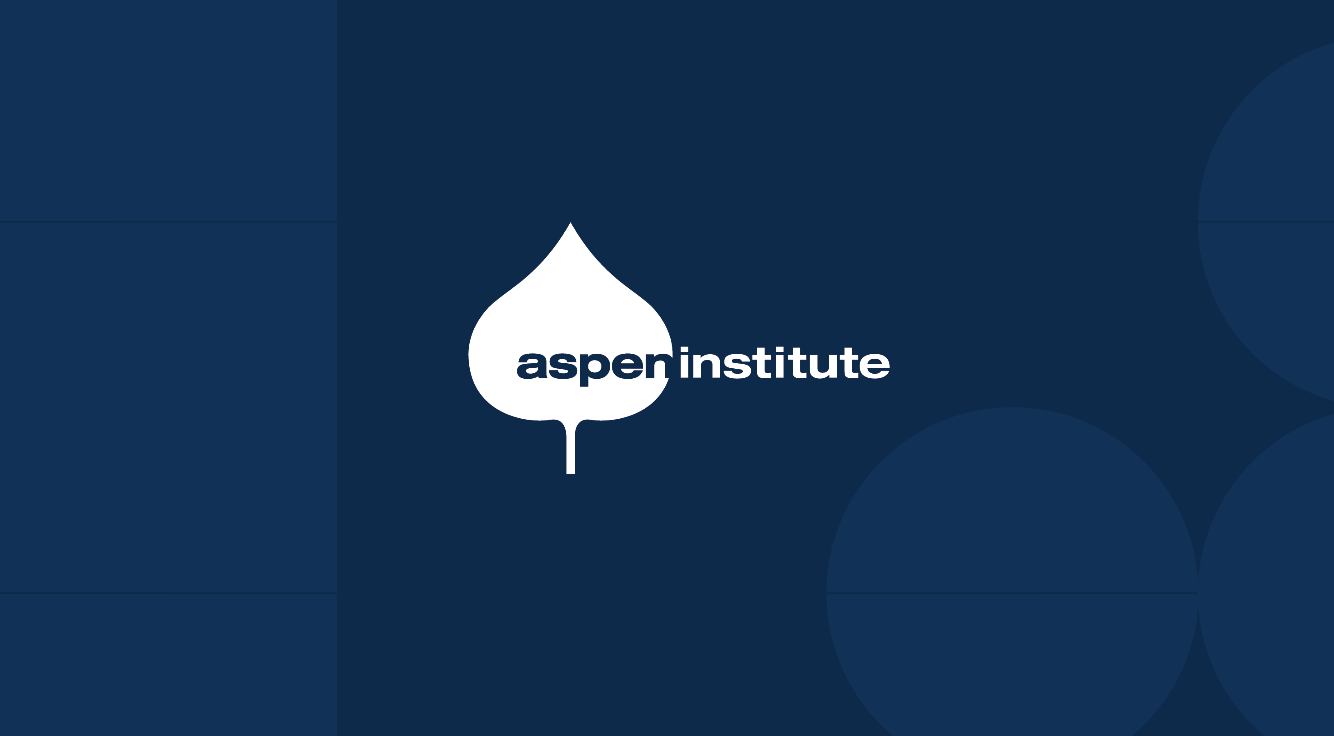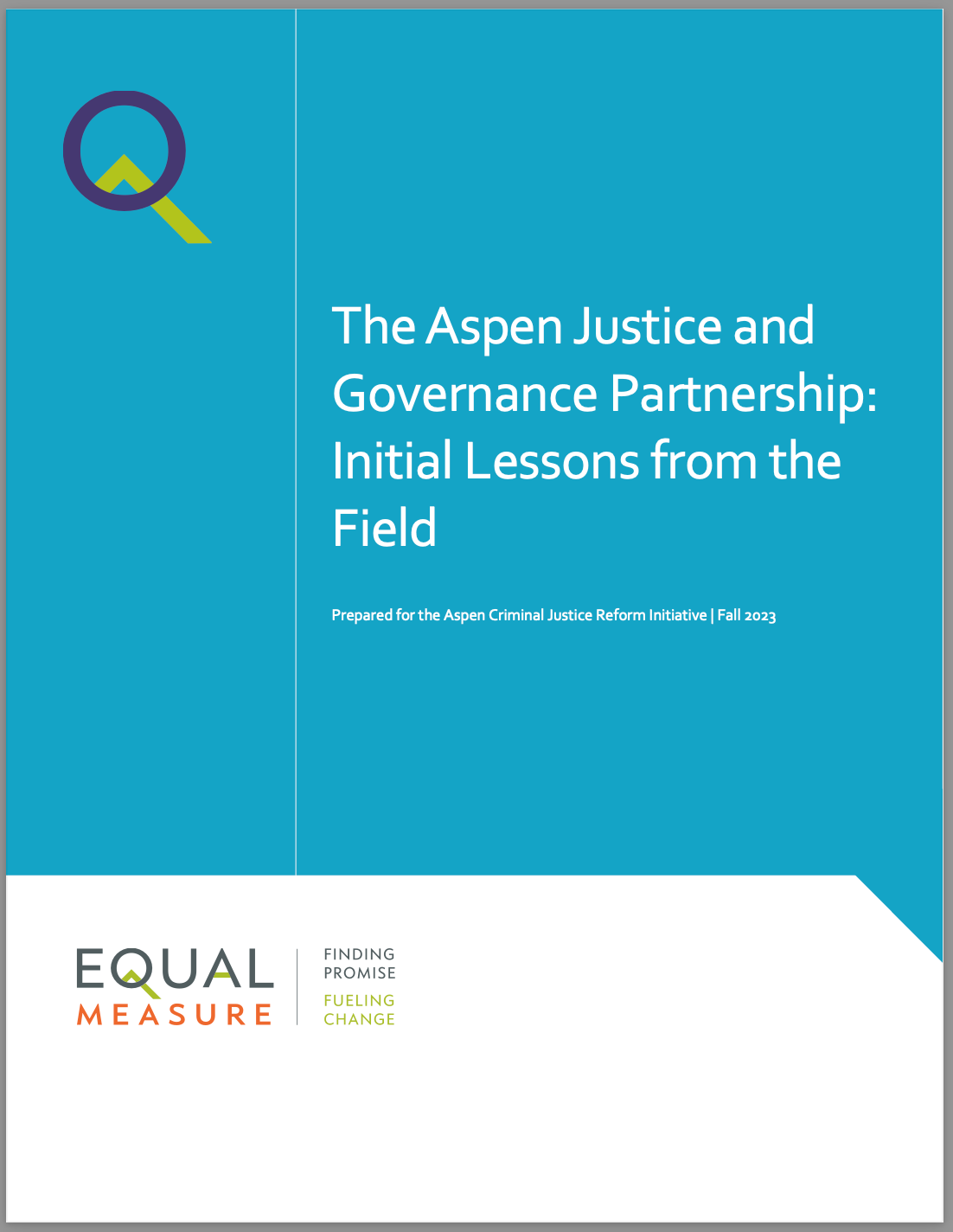In September of 2022, criminal justice experts and community leaders came to Aspen, CO for the inaugural Aspen Justice Network (AJN) Convening. The community leaders—including city and county council members, educators, health care workers, lawyers, police officers, and more—are all part of the Justice and Governance Partnership’s (JGP) Local Justice Collaboratives established in three communities: Grand Rapids, Michigan; Birmingham, Alabama; and 17 rural counties in South Carolina. The AJN Convening connected local leaders, presented pivotal reform ideas, and gave each community the time and space to have conversations about how they want to implement justice reform and create public safety locally in their own communities.
Dr. Douglas E. Wood, Director of The Aspen Institute’s Criminal Justice Reform Initiative (CJRI), kicked off the convening on Monday. He spoke about CJRI’s work and gave an overview of JGP. 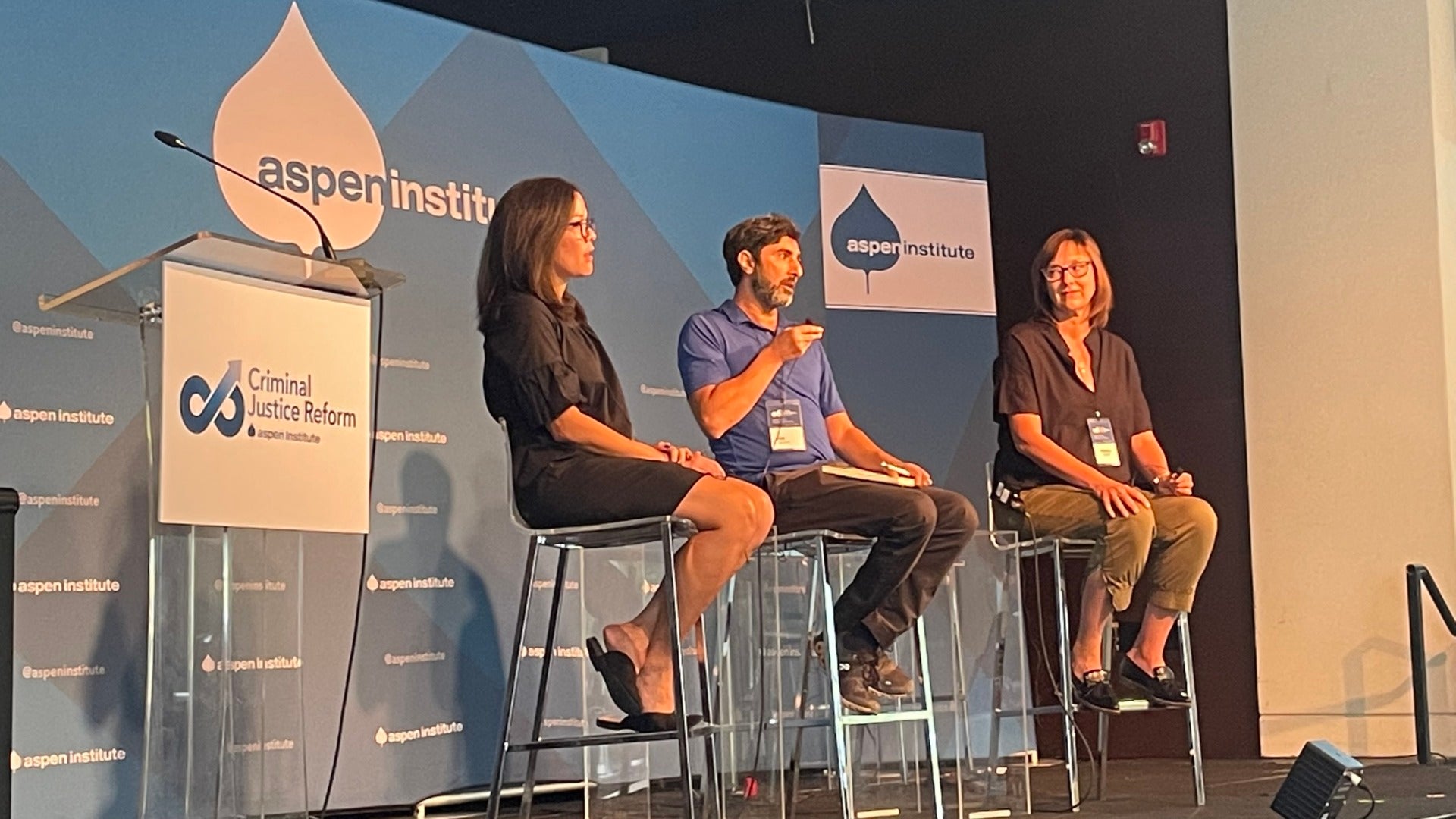 Later, several attendees from Grand Rapids presented on their experience of creating a planning group and selecting a host organization to lead planning for JGP. Trudy Ngo-Brown, Site Lead and Director of Public Agency, West Michigan Center for Arts + Technology, offered an in-depth look into the city of Grand Rapids, which embodies the mid-size city / micropolitan area focus of JGP’s work. Joe Margoli, Board Member of the ACLU of Michigan and co-chair of the JGP planning group, then talked about the process of getting the JGP work off the ground. He explained how even though their project is still in the planning phase, JGP has allowed the Grand Rapids community to ask themselves: “What do we want our community to look like?”
Later, several attendees from Grand Rapids presented on their experience of creating a planning group and selecting a host organization to lead planning for JGP. Trudy Ngo-Brown, Site Lead and Director of Public Agency, West Michigan Center for Arts + Technology, offered an in-depth look into the city of Grand Rapids, which embodies the mid-size city / micropolitan area focus of JGP’s work. Joe Margoli, Board Member of the ACLU of Michigan and co-chair of the JGP planning group, then talked about the process of getting the JGP work off the ground. He explained how even though their project is still in the planning phase, JGP has allowed the Grand Rapids community to ask themselves: “What do we want our community to look like?”
The next plenary was conducted virtually by Stephen Goldsmith, Director of Innovations in American Government Program at Harvard’s Kennedy School of Government, and Kate Markin Coleman, founder of Ias Advising, LLC. Their presentation explained the importance of combining integrated, cross-agency data with community data to address civic injustices, which is one of CJRI’s guiding notions. They posited that people are able to conceptualize and understand such data through mapping, which creates a common reference point for everyone. One quote that stuck out from their presentation was when Markin said, “The ability to map is the ability to see inequity in a powerful way.”
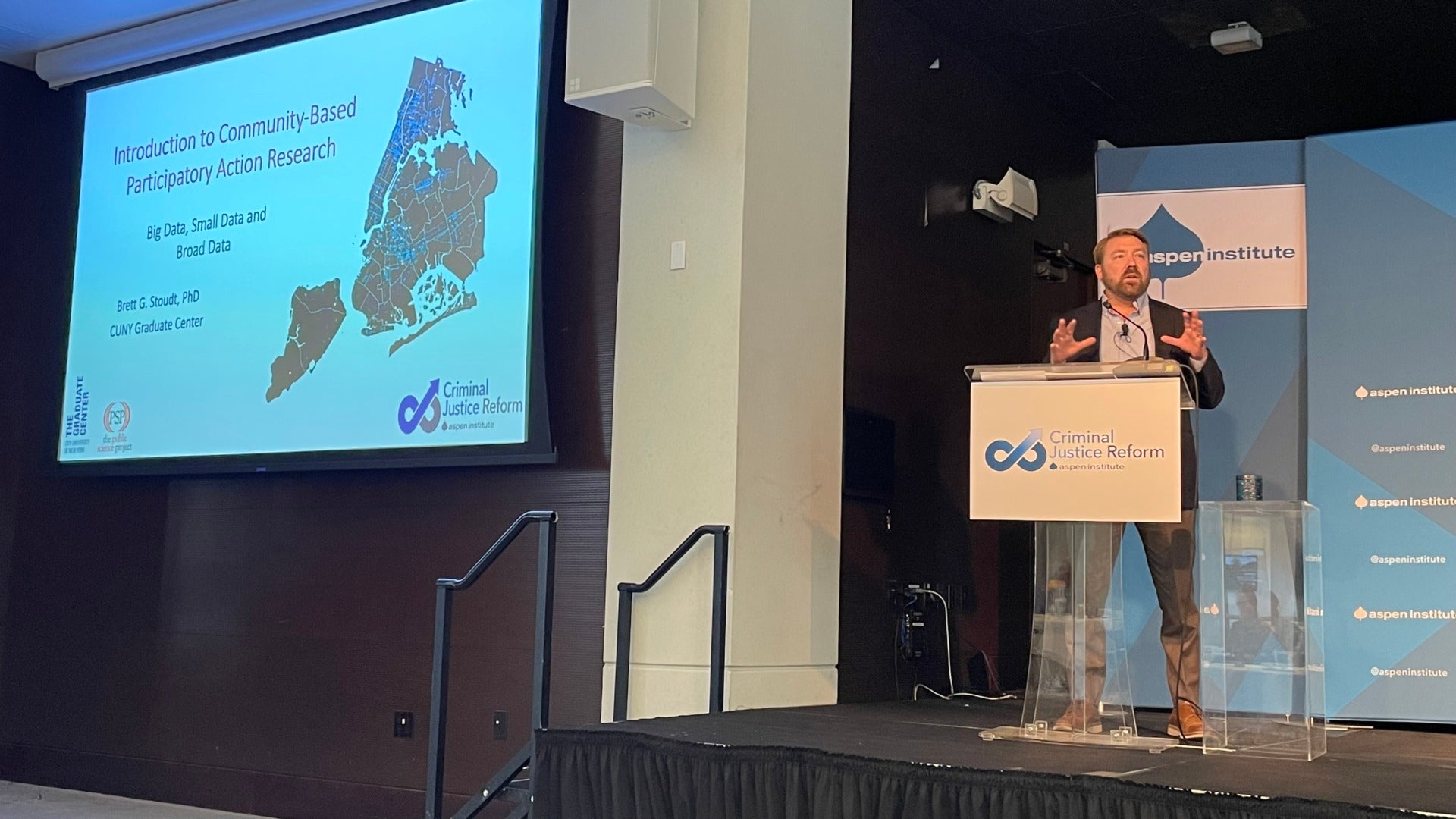 Dr. Brett Stoudt, Associate Professor in the Psychology Department of John Jay College of Criminal Justice, gave the last plenary of the first day, on community-based participatory action research (CBPAR). He shared his experience as a leader of the Morris Justice Project, a CBPAR project started by community members that documented, analyzed, and engaged policing in the South Bronx. Dr. Stoudt expressed the importance of quantitative data, but also the data derived directly from the lived experiences of those most impacted by the criminal justice system.
Dr. Brett Stoudt, Associate Professor in the Psychology Department of John Jay College of Criminal Justice, gave the last plenary of the first day, on community-based participatory action research (CBPAR). He shared his experience as a leader of the Morris Justice Project, a CBPAR project started by community members that documented, analyzed, and engaged policing in the South Bronx. Dr. Stoudt expressed the importance of quantitative data, but also the data derived directly from the lived experiences of those most impacted by the criminal justice system.
Tuesday’s discussions began with remarks from Dr. Wood and Eric Cadora, CJRI Senior Consultant and Director of the Justice Mapping Center. One idea Cadora discussed was that the use of and 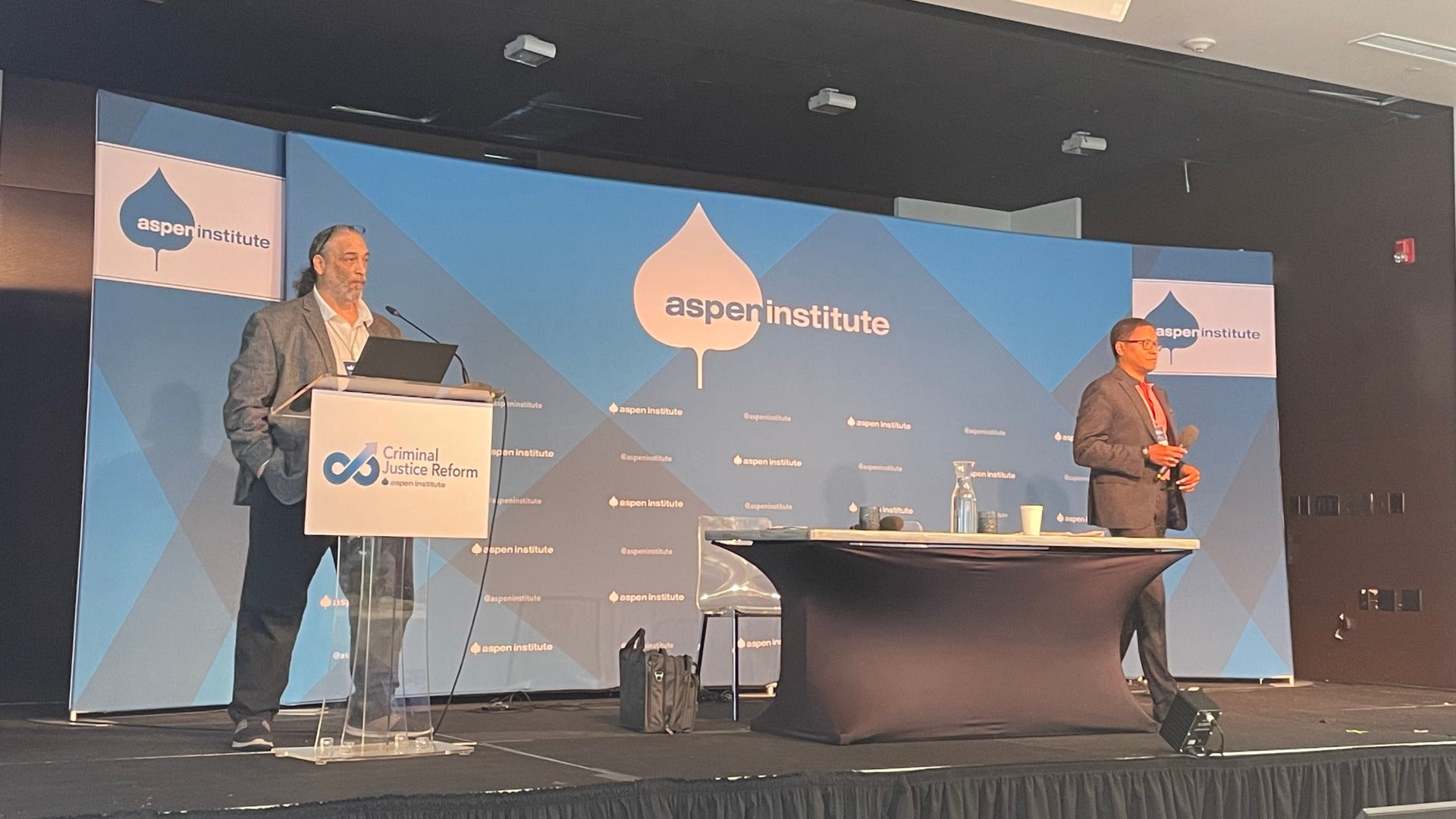 focus on crisis management governance—the perpetual use of ineffective crisis responses to address social problems—is the core problem, not “the justice system.” Dr. Wood and Charles Swartz, VP Technology at SimplyAnalytics, then joined Cadora for a demonstration of the mapping a visualization software that will be used in each JGP community to visualize the data collected from the Justice Audit—an analytical process that collects, renders, and interprets a vast array of data about the nature of justice in a community. Their conversation explained how public safety is not limited to the criminal justice system but is part of the Justice Ecosystem—the interconnected and overlapping system of social and economic circumstances.
focus on crisis management governance—the perpetual use of ineffective crisis responses to address social problems—is the core problem, not “the justice system.” Dr. Wood and Charles Swartz, VP Technology at SimplyAnalytics, then joined Cadora for a demonstration of the mapping a visualization software that will be used in each JGP community to visualize the data collected from the Justice Audit—an analytical process that collects, renders, and interprets a vast array of data about the nature of justice in a community. Their conversation explained how public safety is not limited to the criminal justice system but is part of the Justice Ecosystem—the interconnected and overlapping system of social and economic circumstances.
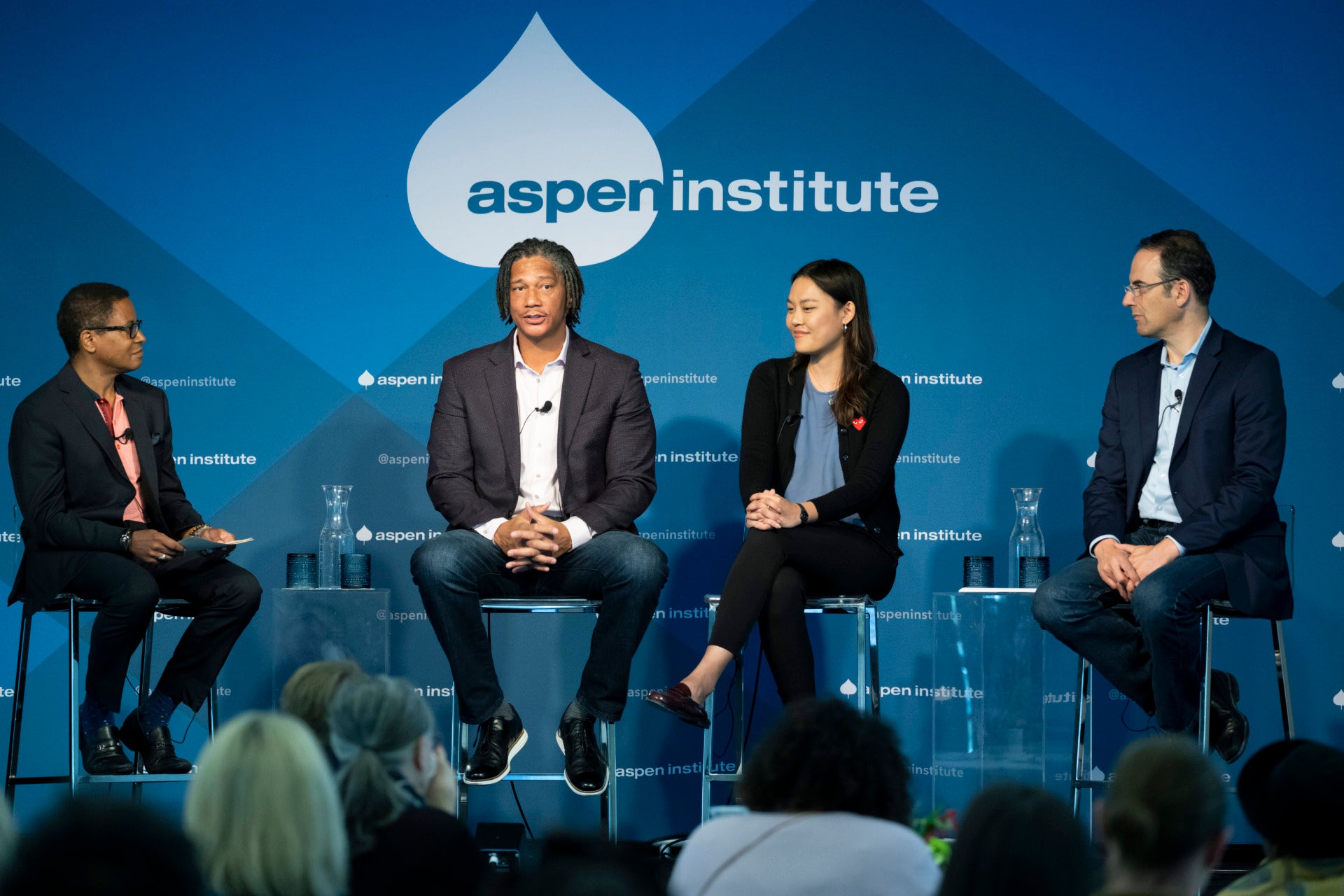 Tuesday’s final panel, moderated by Dr. Wood, built upon the idea of overlapping and concentrated injustices. It included Kenyatta Leal, Executive Director of the Next Chapter Project, Natrina Gandana, Senior Program Manager at Slack for Good, and Philip J. Weiser, the Colorado Attorney General. Much of their conversation focused on reentering citizens and the myriad of obstacles they face. Regarding the successful impact of his reentry program that trains returning citizens to enter the tech world, Leal shared that, “When you invest in people these are the kinds of outcomes you can expect.” A video of this plenary is available here.
Tuesday’s final panel, moderated by Dr. Wood, built upon the idea of overlapping and concentrated injustices. It included Kenyatta Leal, Executive Director of the Next Chapter Project, Natrina Gandana, Senior Program Manager at Slack for Good, and Philip J. Weiser, the Colorado Attorney General. Much of their conversation focused on reentering citizens and the myriad of obstacles they face. Regarding the successful impact of his reentry program that trains returning citizens to enter the tech world, Leal shared that, “When you invest in people these are the kinds of outcomes you can expect.” A video of this plenary is available here.
For Wednesday’s closing plenary, Dr. Wood moderated a conversation between Erica Bond, Vice President of Social Justice Initiatives at John Jay College of Criminal Justice, and DeAnna Hoskins, 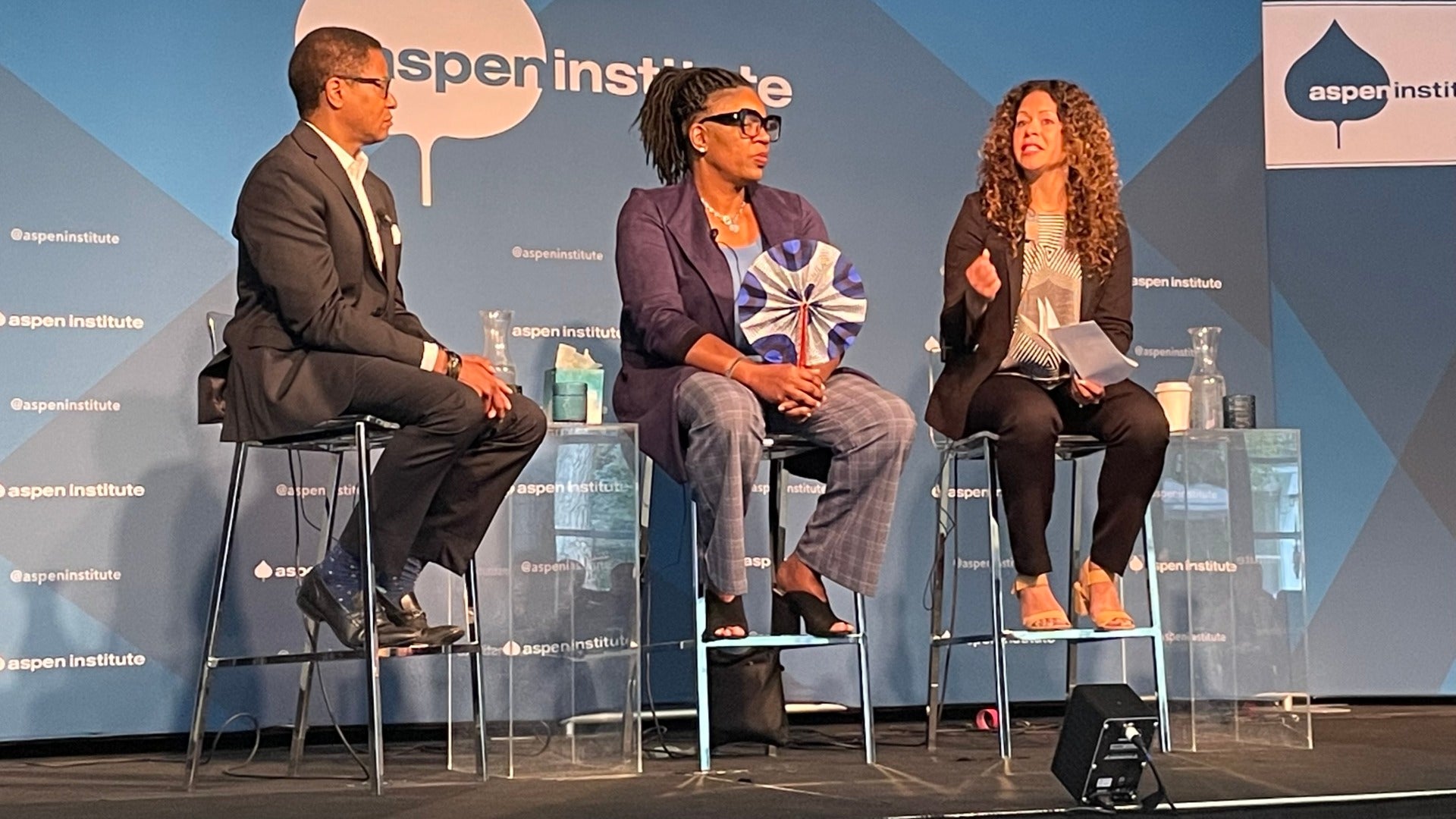 President and CEO of JustLeadershipUSA. One particularly influential moment was when Dr. Wood asked, “What’s needed for us to have a different approach when it comes to supporting communities that have overlapping inequities and spacial concentrations of high rates of incarceration?” Hoskins responded, “The most oppressed and marginalized communities don’t have the four institutions that stabilize the community: education, grocery, hospital, and financial. […] A lot of times you don’t have the financial institutions that invest back in the communities where they sit.” This closing discussion captured the essence of AJN and the purpose of the first gathering of JGP’s partner communities.
President and CEO of JustLeadershipUSA. One particularly influential moment was when Dr. Wood asked, “What’s needed for us to have a different approach when it comes to supporting communities that have overlapping inequities and spacial concentrations of high rates of incarceration?” Hoskins responded, “The most oppressed and marginalized communities don’t have the four institutions that stabilize the community: education, grocery, hospital, and financial. […] A lot of times you don’t have the financial institutions that invest back in the communities where they sit.” This closing discussion captured the essence of AJN and the purpose of the first gathering of JGP’s partner communities.
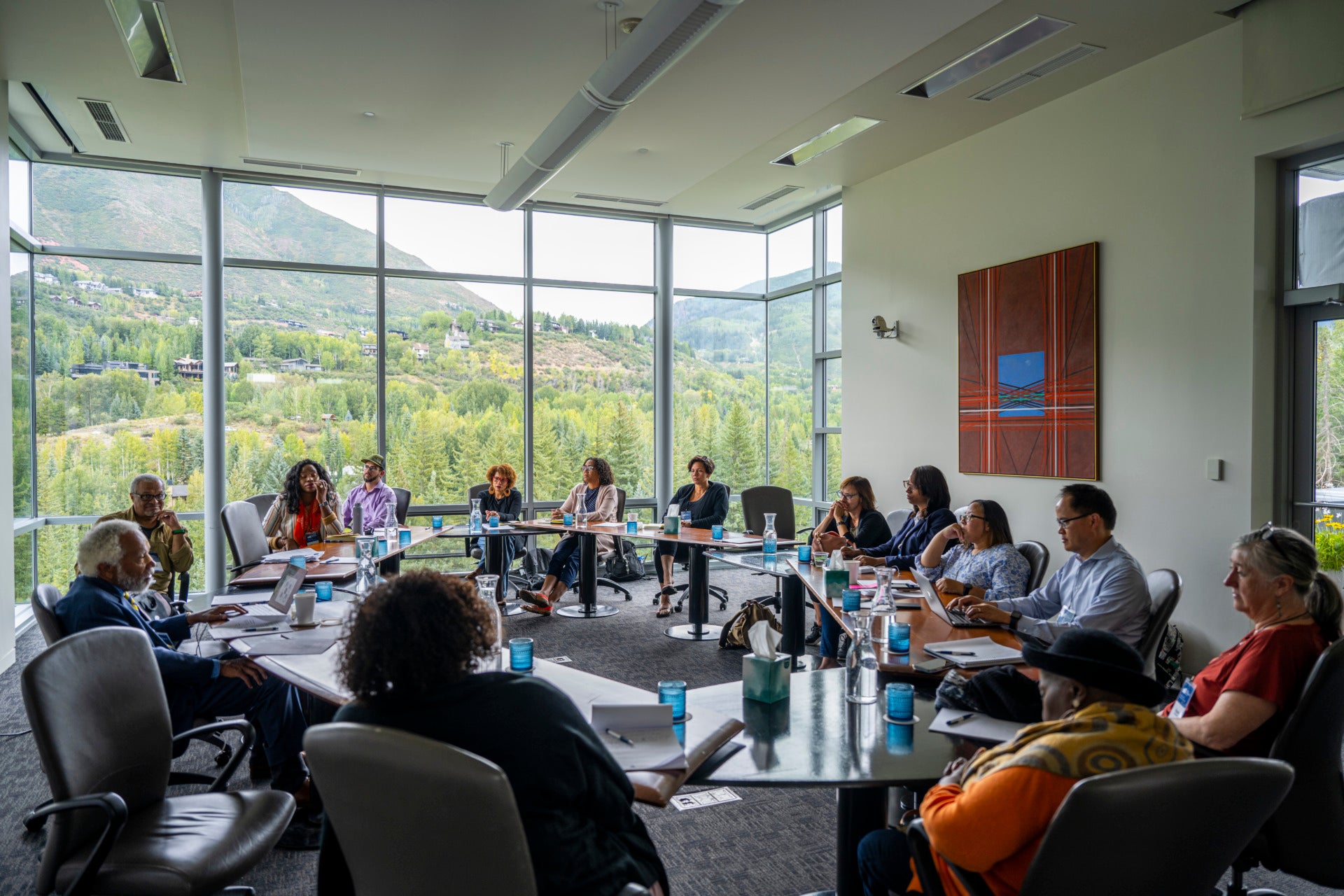 Throughout the three days of AJN, community attendees also had the chance to attend workshops held by experts on community collaboration; and had deeper engagement around their community’s unique situations through consultancies with Dr. Stoudt, Eric Cadora of Justice Mapping Center, and CJRI’s evaluation partner for JGP, Equal Measure. The AJN also offered time for each community team to meet together, discuss what they were learning, and create plans for what to do when they returned home.
Throughout the three days of AJN, community attendees also had the chance to attend workshops held by experts on community collaboration; and had deeper engagement around their community’s unique situations through consultancies with Dr. Stoudt, Eric Cadora of Justice Mapping Center, and CJRI’s evaluation partner for JGP, Equal Measure. The AJN also offered time for each community team to meet together, discuss what they were learning, and create plans for what to do when they returned home.
There is a whole ecosystem that must be addressed to create sustainable and lasting change in communities that have historically faced multiplying inequities and injustices; this work is not easy or simple. These three communities that came together at AJN left with a renewed drive to create change through the effective use of community-owned data and are already building the power and momentum for justice transformation.
